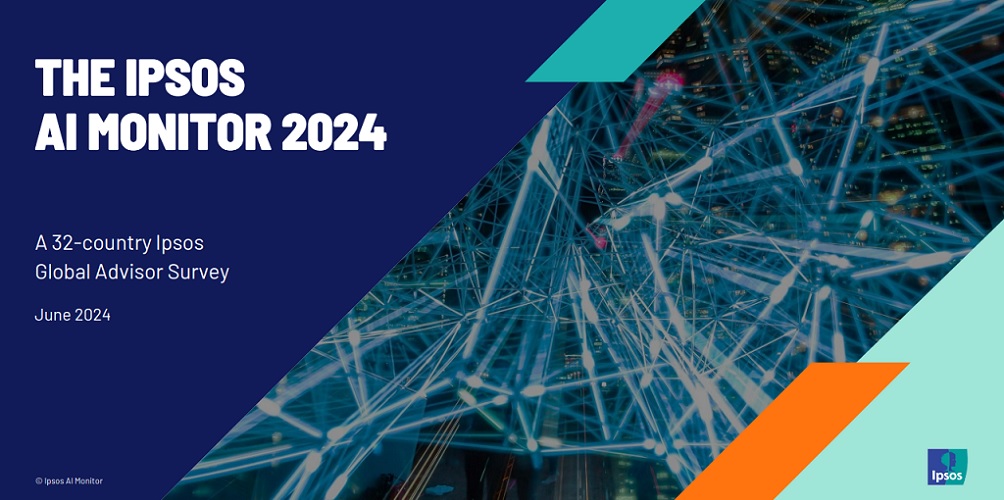
Artificial Intelligence (AI) is seemingly everywhere, and being built into everything. But how do your customers view this technology? Should we or shouldn’t we fear a future with AI?
In their third annual edition of AI Monitor, IPSOS explores changing attitudes towards usage of AI, where AI will have the biggest impact, and what a future with AI looks like.

Key findings of this 32 country survey include:
Globally people are both excited and nervous about AI. Fifty-three per cent say they are excited for products and services that use AI, compared to 50% who say AI makes them nervous. Asia is where excitement is highest while the Anglosphere and Europe are most sceptical.
Humans are viewed as more likely to discriminate than AI. In 29 out of the 32 countries surveyed more people think humans are more likely to discriminate against other people than AI is. Ireland is the only country where people are more likely to say they trust people to discriminate less than AI.
AI expected to make disinformation worse. Thirty-seven per cent on average think AI will make disinformation on the internet worse, while 30% think it will be better. In three countries – Sweden, Australia and New Zealand – do a majority think it will make disinformation worse.
Knowledge about AI highest among the young. Sixty-seven per cent across 32 countries say they have a good understanding of AI. This rises to 72% for Gen Z and 71% for Millennials 71%, while only 58% of Baby Boomers say they have a good understanding of AI.
People more likely to think AI will make their job better. Thirty-seven per cent think AI will make their job better compared to 16% who say it will get worse. However, 36% expect AI to replace their job in the coming years, with those with a higher level of education most concerned.

Peak or plateau?
Matt Carmichael, SVP, Global Trends & Foresight, Ipsos Strategy comments:
„In this year’s report we see a continuation of that split between the wonder and the worry of AI. But overall there is very little change in the data year-over-year. One plausible explanation is that we have hit a peak in many attitudes. That as we become more used to AI in our lives it’s not driving more worry, and the 2-point decrease in people saying AI makes them nervous (well within the margins) is actually recognizing a growing comfort with AI tools. Although, for all the change and hype it certainly hasn’t revolutionized everyone’s life in every market … yet.
There’s another plausible theory that we are merely at a plateau. That the worry is very real and as new and improved AI tools begin working into every aspect of our lives — from creation of entertainment, to our schools and our workplaces that the worry (or the wonder for that matter) will rise.
While much of the Ipsos AI Monitor is an annual check-in on the pulse of global citizens two new statements were added to the survey this year.
One is that while only 54% of global citizens trust AI not to discriminate or show bias, even fewer (45%) trust people not to discriminate or show bias. So despite headlines about the bias in AI, we actually trust our fellow humans less than we trust the computers.
Second is that while a majority are hopeful that AI will lead to more efficiency (being able to get things done faster) and create more entertainment options, that’s about it.
For the moment, we don’t see AI having a big (or at least a positive) impact on our health, the economy where we live, our jobs or the overall job market. However, we are least hopeful that AI will have a positive impact on the amount of disinformation on the Internet. That’s especially important in a year like 2024 when half of the world’s population is having elections.„
Download the Ipsos AI Monitor report and find out more about how people feel about AI and the future they think AI will bring.
Banking 4.0 – „how was the experience for you”
„To be honest I think that Sinaia, your conference, is much better then Davos.”
Many more interesting quotes in the video below: